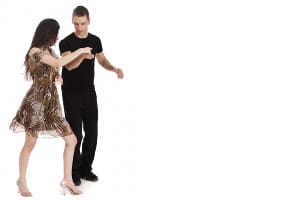When we give an invitation to someone, we are asking someone if they want to:
- go somewhere
- do something
- have something
In this lesson, you will learn 5 different ways to give an invitation.
Would you like…… ?
“Would you like…..?” is an excellent way to give an invitation. There are 2 types of form.
Form 1:
“would you like” + noun phrase
Examples:
Would you like a cake?
Would you like a cup of coffee?

Form 2:
“would you like” + infinitive
Examples:
Would you like to come shopping with me next week?
Would you like to have lunch today?
Would you like to dance?

Do you want.. ?
“Do you want.. ?” is another way to give an invitation. It is slightly more informal than “Would you like?”
Again, there are 2 types of form.
Form 1:
“do you want” + noun phrase
Examples:
Do you want another cup of coffee?
Do you want a biscuit?
Form 2:
“do you want” + infinitive
Examples:
Do you want to come to the party on Saturday?
Do you want to go for a drink?

Imperative form
The imperative form of a verb is the base form. We usually use the imperative form to give an order or warning to someone.
Example:
Clean the bathroom!
We can also use the imperative to give an invitation. Be careful. The imperative is very direct. Some people will find it too forceful.
Examples:
Come to the restaurant with us tonight.
Sit down. Have a cake.
Come to the museum. Bring your friend.
Why don’t you.. ?
“Why don’t you…..?” is a very good way to give an invitation to someone.
Examples:
Mark: Why don’t you come to the concert with us tonight?
David: Thanks, that’d be great.
Jane: Why don’t you join us for a drink after work?
Sarah: Thanks. I’d love to.

Clare: Why don’t you come to London with us next week?
Jane: Thanks, that’s very kind of you to ask.
You must / You’ll have to
We often use “you must…..” or “you’ll have to….” to give a vague invitation.
A vague invitation is not a firm invitation. It does not have a specific date or time.
Both structures are followed by the base form of a verb:
“you must” + base form
“you’ll have to” + base form
We often use vague time expressions:
soon
some time
after Christmas
in the new year
We often say this to be polite but we aren’t perhaps very enthusiastic about it.
Examples:
You must visit us in London in the new year.
You’ll have to have lunch with us soon.
You must join us for a drink some time.
More English lessons
English idoms and expressions with GIVE
Expressions and phrases with CARE
Business English phrases and expressions
What happens on the day of the IELTS exam?
English lessons on our Youtube channel


John Bility says
I am a football player in Africa and I play for a first division team in Liberia. the first division team are play for is fc watanga my name is John Z Bility.
John Z Bility says
But are do not no how much is the fields